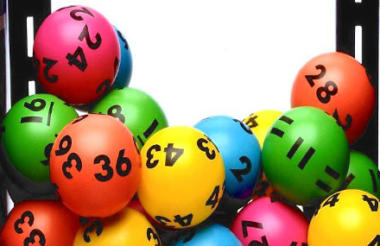Camelot has not “been the easiest to work with”, according to Donald Macrae, a promoter from the Health Lottery.
He was giving evidence at the Digital, Culture, Media and Sport (DCMS) select committee yesterday. He was joined by Clara Govier from the People's Postcode Lottery (PPL) and Tony Vick from Lotteries Council.
Chair of the DCMS Committee, Julian Knight, said they had referred to Camelot’s approach as “slightly aggressive and slightly territorial”, and asked: ”You must be pleased that they’ve lost the contract now, mustn’t you?”
Macrae replied: “They haven’t been the easiest to work within the sector and we would really like to see either a change from Camelot if they do end up actually having the franchise because that seems to be dependent on litigation. We hope that whoever ends up winning the franchise sees a more positive way of working together with society lotteries.”
Last month, the fourth licence to run the National Lottery was awarded to Allwyn instead of Camelot, which has held it for 28 years. Since then, Camelot has now begun legal action against the Gambling Commission.
Camelot has raised £45bn since 1994, but Allwyn has pledged to donate £38bn to good causes over the next decade.
Attempts at improving relationships with Camelot were ‘rebuffed’
Vick said over the years the Lotteries Council made attempts at a friendlier relationship with Camelot but “sadly they’ve been rebuffed”.
He continued that “after all we both exist to raise money for good causes so, therefore, we shouldn’t be at each other’s throats”.
Vick said that Lotteries Council would like a better relationship with the operator of the National Lottery and if there is a new one, which is not confirmed as yet, there is scope to approach the operator and build this relationship.
National Lottery and society lotteries should work together
Clara Govier, managing director of the People’s Postcode Lottery (PPL), said: “I think there’s an opportunity through the funding mechanisms to actually work together collaboratively to ensure the impact to the charities that we all support.”
Govier gave the example of how the PPL gave British Red Cross over £10m to support its core costs of operations while it also received £10.5m from a National Lottery fund for a specific project. She said this would not have been possible without the core costs PPL funded.
She continued: “I think that’s where we can bring power together in a partnership with civil society and the National Lottery. We can do more for charities, which should be the ethos we’re all working for.”
Do lotteries compete with one another?
Kevin Brennan, Labour MP, asked to what extent society lotteries compete with the National Lottery.
Vick argued that society lotteries are not competitors with the National Lottery and that they complement one another.
Brennan said that in 2019, the CEO of Camelot said the increase in spending on society lotteries was a “threat” to the National Lottery income and could ultimately reduce the amount of money it donates to good causes,
Vick said: “Camelot have been raising that particular issue since the Health Lottery launched in 2011. They said at the time that the Health Lottery would be the death knell to the National Lottery but all the evidence has been completely to the contrary. While society lotteries have increased over that period, the National Lottery has too.”
He added that he believes Camelot “selectively publish” from a report that they “refuse to publish” that alleges society lotteries are a threat to the National Lottery.
Macrae told MPs: “One of the issues we’ve had with Camelot is when they say a pound given to us is a pound taken away from them. It’s not a zero-sum game. The British public have an enormous capacity to fund good causes.”
Related articles











